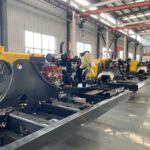Introduction
Selecting the right backhoe excavator is crucial for the success of any construction project. The right equipment can enhance productivity, ensure safety, and lead to better project outcomes. However, with the multitude of options available in the market, choosing the best backhoe excavator for your needs can be challenging. This comprehensive guide will walk you through the essential factors to consider, helping you make an informed decision.
Understanding Backhoe Excavators

What is a Backhoe Excavator?
A backhoe excavator is a versatile piece of construction equipment that combines a digging bucket on the front and a smaller backhoe on the rear. This dual functionality makes it ideal for a variety of tasks, including digging, trenching, and material handling. Backhoe excavators are commonly used in construction, landscaping, and agriculture due to their efficiency and versatility.
Types of Backhoe Excavators
There are several types of backhoe excavators, each suited for different tasks and environments:
Standard Backhoe Excavators: These are the most common type, featuring a robust design suitable for general construction tasks.
Mini Backhoe Excavators: Smaller and more maneuverable, ideal for tight spaces and smaller projects.
Loader Backhoe Excavators: Equipped with a front loader bucket, these are perfect for tasks that require both digging and material handling.
Tractor Backhoe Excavators: Attached to a tractor, these are versatile for agricultural and landscaping tasks.
Key Factors to Consider When Choosing a Backhoe Excavator
Job Requirements
The first step in choosing the right backhoe excavator is to understand the specific requirements of your job. Consider the following aspects:
- Type of Work: Determine the primary tasks the excavator will perform, such as digging, trenching, or material handling.
- Site Conditions: Assess the terrain and environmental conditions where the excavator will operate. This includes factors like soil type, space constraints, and accessibility.
- Project Scale: Consider the size and duration of your project. Larger projects may require more powerful and durable equipment.
Size and Power
Backhoe excavators come in various sizes and power ratings. The right size and power depend on your job requirements:
- Mini Backhoe Excavators: Ideal for small-scale projects and tight spaces. They offer ease of maneuverability but have lower power.
- Standard Backhoe Excavators: Suitable for medium to large projects. They provide a balance of power and versatility.
- Large Backhoe Excavators: Designed for heavy-duty tasks and large-scale projects. They offer maximum power and capacity but may be less maneuverable in confined spaces.
Pièces jointes et accessoires
The versatility of a backhoe excavator can be enhanced with various attachments and accessories. Some common options include:
- Buckets: Different types and sizes for specific tasks like digging, trenching, or material handling.
- Hydraulic Hammers: For breaking up concrete or rock.
- Augers: For drilling holes in the ground.
- Thumbs: For improved material handling and gripping.
Choosing the right attachments can significantly increase the efficiency and versatility of your backhoe excavator.
Brand and Dealer Support
When investing in a backhoe excavator, the brand and dealer support play a crucial role. Consider the following:
- Brand Reputation: Opt for reputable brands known for quality and reliability.
- Dealer Network: Ensure there is a reliable dealer network for maintenance, repairs, and parts availability.
- Garantie et assistance: Check the warranty terms and after-sales support offered by the manufacturer.
Budget and Financing
Your budget is a critical factor in the decision-making process. Consider the following financial aspects:
- Initial Cost: Compare the upfront cost of different models and brands.
- Operational Costs: Factor in fuel efficiency, maintenance, and repair costs.
- Financing Options: Explore financing options offered by dealers or financial institutions to ease the financial burden.
Comparing Popular Backhoe Excavator Models
To help you make an informed decision, here is a comparison of some popular backhoe excavator models based on key criteria:
| Modèle | Size | Pouvoir | Attachments Available | Brand Reputation |
|---|---|---|---|---|
| Caterpillar 420F2 | Standard | 93 HP | Buckets, Hammers, Augers | High |
| Maxpower ME130.9 | Standard | 115 HP | Buckets, Thumbs, Hammers | High |
| JCB 3CX Compact | Mini | 74 HP | Buckets, Augers, Thumbs | High |
| Case 580N | Standard | 90 HP | Buckets, Hammers, Augers | High |
| Kubota BX23S | Mini | 23 HP | Buckets, Thumbs, Augers | Moyen |
How to Use a Backhoe Excavator Safely

Preparation and Inspection
Before operating a backhoe excavator, it’s essential to conduct a thorough inspection and preparation:
- Read the Manual: Familiarize yourself with the operator’s manual and safety guidelines.
- Inspect the Equipment: Check for any visible damage, fluid leaks, or loose parts.
- Wear Protective Gear: Always wear appropriate personal protective equipment (PPE), including a hard hat, safety goggles, gloves, and steel-toed boots.
Operating the Backhoe Excavator
When operating a backhoe excavator, follow these safety practices:
- Stabilize the Machine: Ensure the excavator is on stable ground and use stabilizers if available.
- Proper Positioning: Position the excavator correctly before starting any task to ensure stability and efficiency.
- Use Controls Smoothly: Operate the controls smoothly to avoid sudden movements that could destabilize the machine.
- Avoid Overloading: Do not exceed the excavator’s capacity to prevent damage and ensure safety.
Maintenance and Upkeep
Regular maintenance is crucial for the longevity and performance of your backhoe excavator:
- Daily Checks: Perform daily checks on fluid levels, tire pressure, and hydraulic systems.
- Scheduled Maintenance: Follow the manufacturer’s recommended maintenance schedule for oil changes, filter replacements, and other essential tasks.
- Clean Regularly: Keep the excavator clean to prevent dirt and debris buildup, which can cause wear and tear.
Conclusion
Choosing the right backhoe excavatrice for your needs involves considering various factors such as job requirements, size and power, attachments, brand reputation, and budget. By understanding these aspects and comparing popular models, you can make an informed decision that enhances your project’s efficiency and success. Whether you opt for a mini, standard, or tractor backhoe excavator, investing in the right equipment will ensure optimal performance and longevity. Always prioritize safety and regular maintenance to maximize the benefits of your backhoe excavator.
FAQ
What is the average lifespan of a backhoe excavator?
The average lifespan of a backhoe excavator depends on factors such as usage, maintenance, and operating conditions. With proper care, a backhoe excavator can last between 7,000 to 10,000 hours of operation.
Can I rent a backhoe excavator instead of buying one?
Yes, renting a backhoe excavator is a viable option, especially for short-term projects or occasional use. It allows you to access high-quality equipment without the significant upfront investment.
How do I choose the right attachments for my backhoe excavator?
Choosing the right attachments depends on the specific tasks you need to perform. Consider the type of work, material, and site conditions to select the most suitable attachments, such as buckets, hammers, augers, or thumbs.
What is the difference between a mini backhoe excavator and a standard backhoe excavator?
The primary difference lies in size and power. Mini backhoe excavators are smaller and more maneuverable, ideal for tight spaces and smaller projects. Standard backhoe excavators are larger, offering more power and capacity for medium to large-scale projects.
Are backhoe excavators environmentally friendly?
Modern backhoe excavators are designed to be more environmentally friendly, with features such as improved fuel efficiency and reduced emissions. Choosing electric or hybrid models can further minimize environmental impact.


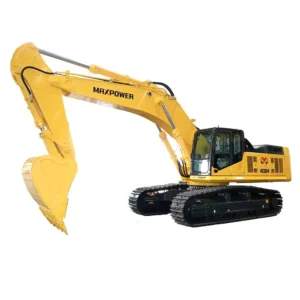
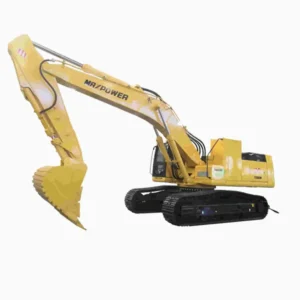
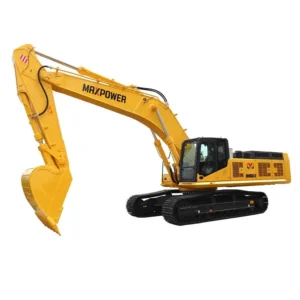
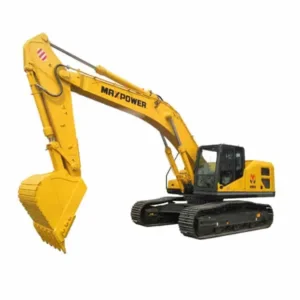
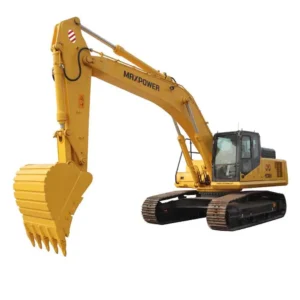
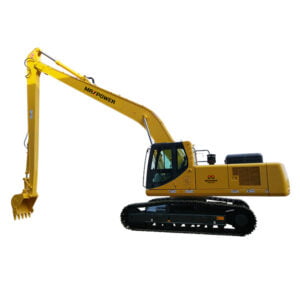
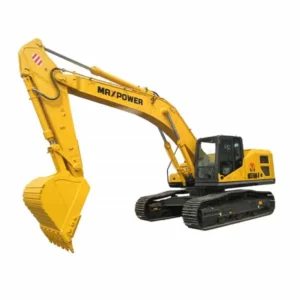
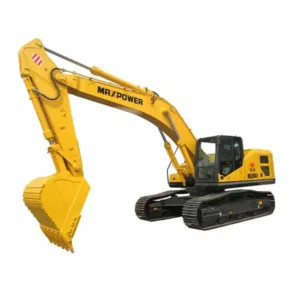
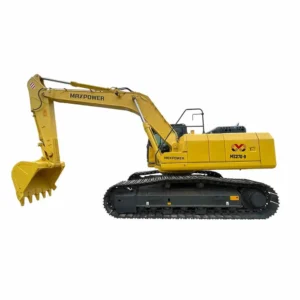
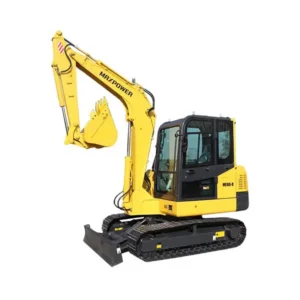
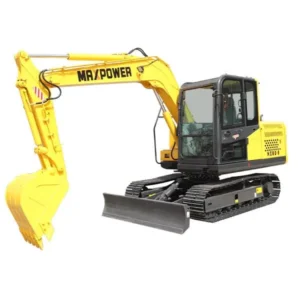
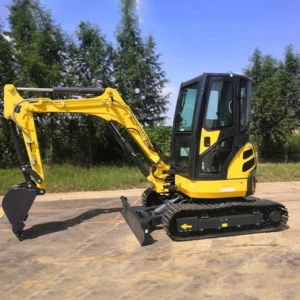
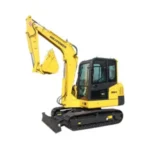

-150x150.webp)
